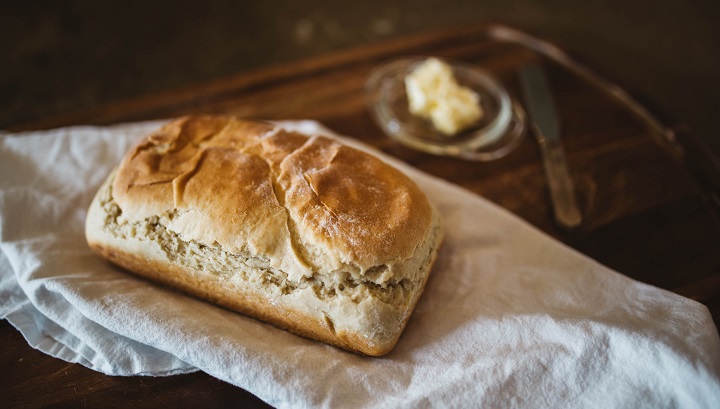There was a farmer who sold a pound of butter to a baker. One day the baker decided to weigh the butter to see if he was getting a pound, and he found that he was not. This angered him, and he took the farmer to court. The judge asked the farmer what he was using to measure. The farmer replied, your Honor, I am primitive. I don’t have a proper measure, but I do have a scale.” The judge asked, “Then how do you weigh the butter?” The farmer replied “Your Honor, before the baker started buying butter from me, I had been buying a pound loaf of bread from him. Every day when the baker brings the bread, I put it on the scale and give him the same weight in butter.”
This is a story I have seen on the internet without any attribution to an author. I find it to be a very interesting and instructive short story.
Integrity Matters
Yahweh hates dishonest scales (Proverbs 11:1), and, being made in His image, so do men. The baker was angry because he was purchasing a pound of butter and not getting it! It is natural to be bothered by sin, particularly when it is done against us. If we believe someone is stealing from us, we can be angered or annoyed. How careful should we be not to steal from others (Ephesians 4:28)!
In many cases, the person from whom we are stealing will never actually know. Our integrity must be such that we realize that God is always seeing everything we do. There are many ways we steal from others in this world which the Lord Jesus Christ observes. Many of us steal from our employers by not giving them our best or the proper focus. Maybe you steal cable or internet service by violating a hard to enforce term of service from the provider? Have you ever lied or even just exaggerated the truth to get a free or discounted meal at a restaurant? There are times we likely cross the line from complete honesty in God’s eyes into sin as we encounter these situations.
Hypocrites Get What’s Coming to Them
In the most famous Bible verse (literally ever), Jesus said, “Judge not, that you be not judged.” But shortly following that statement Jesus added [emphasis mine]:
Matthew 7:2 ESV
2 For with the judgment you pronounce you will be judged, and with the measure you use it will be measured to you.
I find the phraseology used in Matthew 7:2 intriguing in light of the short story above. The baker was paid back with the same measure he was using. In the story, it turns out he wasn’t actually being shortchanged any more than he was shortchanging his neighbor. There’s a poetic justice about it all because the farmer never took vengeance on the baker — the farmer unwittingly evened the score by treating the baker the same way he was being treated.
The farmer didn’t do this in order to settle the score, or get even. He did it in good faith! But the instruction is clear — the measure the baker used was used against him, and he didn’t like it. “You are the man,” can be heard ringing in his ears (even though he’s ‘not David’).
Biblical Christians do not believe in Karma — that would be idolatry. But we do believe that men reap what they sow (Galatians 6:7), that our sin will find us out (Numbers 32:23;Joshua 7), and that it will be measured to us with the measure we use (Matthew 7:2). So honor the Lord in all you do because He is worthy, and because it’s bad for you not to do so.
Love Overlooks a Multitude
I can’t imagine anyone reading that short story and thinking, “but the farmer should have been more diligent to provide the pound of butter.” It just isn’t how we think, and I think that’s OK. The farmer did all he could to provide what he believed to be a pound of butter to the baker. There was no guilt in him. The farmer is clearly seen as the victim, and the baker as the bad guy.
Think about it this way — the farmer’s error, although real, is easily overlooked because he clearly didn’t have evil intent behind his error. Peter tells us that love covers a multitude of sins (1 Peter 4:8). How much more should our love cover unintentional sins or simple errors on the part of our brothers and sisters? Do you even consider how it would glorify God (Matthew 5:16) if you were willing to be merciful and gracious towards people who make mistakes, yet confess no intention of harm?
Has anyone ever hurt you, and when you confronted them, they either said they didn’t mean to hurt you, or that they didn’t even realize they had done so? What was your reaction? There are enough offenses in the world without making mountains out of the molehill versions of sins against us.
How much more would your life point to the saving grace of our Lord Jesus Christ if you learned to overlook big offenses, as well? Or what about small offenses which were actually intentional? You have sinned against a holy God with reckless abandon and presumption, and yet He still loves you; can’t you do the same for your brethren and the lost? 1
Go and Do Likewise
You can do this by the power of the Holy Spirit and the motivation provided by the resurrection of Jesus Christ from the dead. Put to death the deeds of the flesh like coveting and thievery. Live a life of integrity in the eyes of the One who really matters (and actually sees), and forgive like you yourself have been forgiven an insurmountable debt (you have).

Think the best of others (like the farmer) and treat them the way you expect to be treated (Matthew 7:12). Search for and ask God to reveal to you your own hidden sin (Psalm 19:12) that you might repent and not experience the reaping of what you may even be unknowingly sowing.
1 I am not advocating that every single horrific offense requires that the victim immediately “get over it and forgive.” Nor am I saying that reconciliation is even possible in every case. I do believe the BULK of the offenses we take are ones for which we can move on more quickly that we do, with less resentment and bitterness than it seems many Christians carry without regard for our Lord.
Neither am I saying that we ought never confront others about their sin, but, rather, it is our internal disposition toward the person that I am speaking of, i.e., our willingness to forgive that offense.








